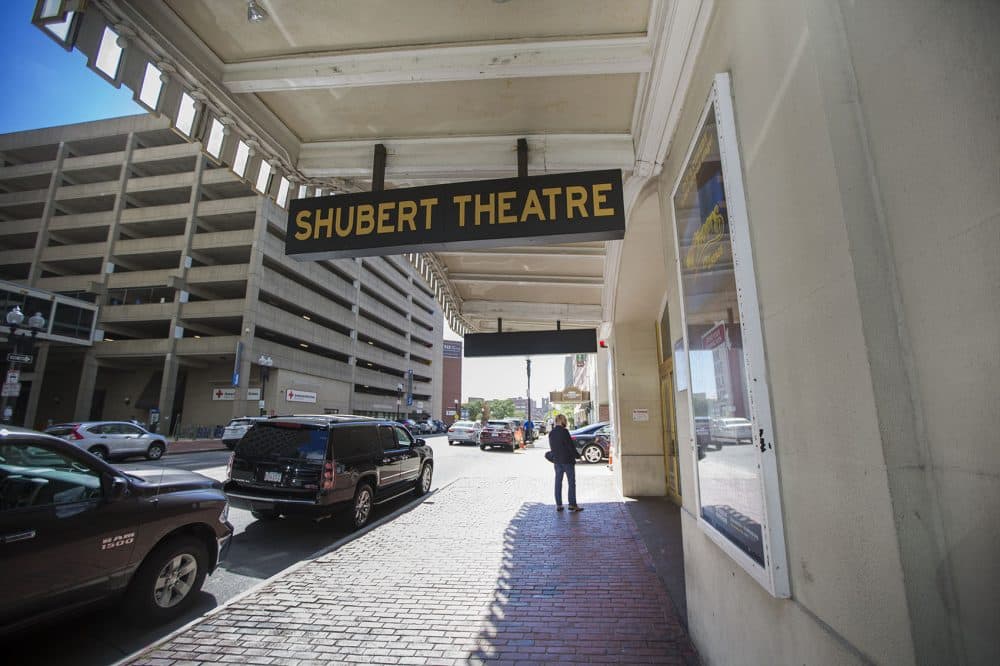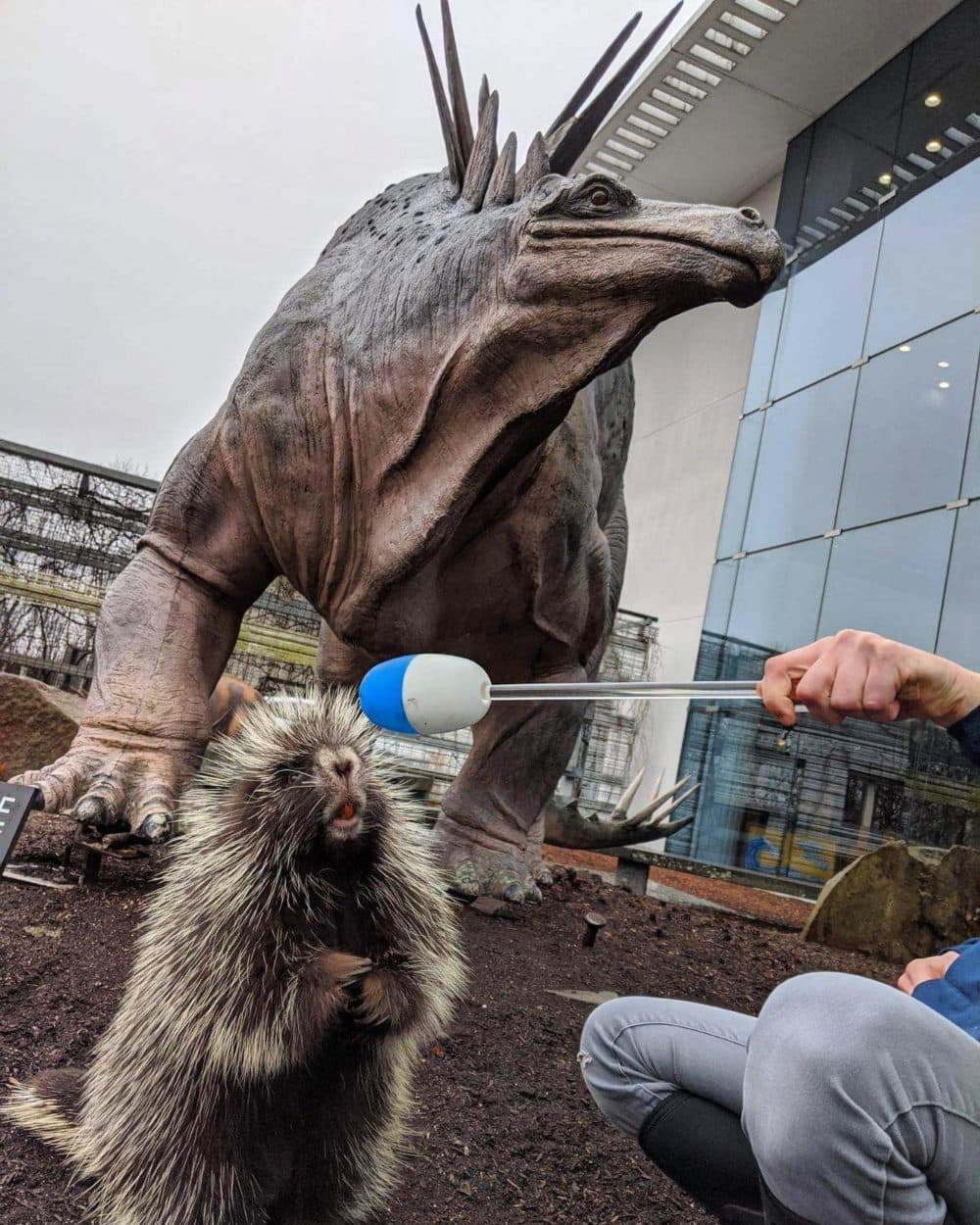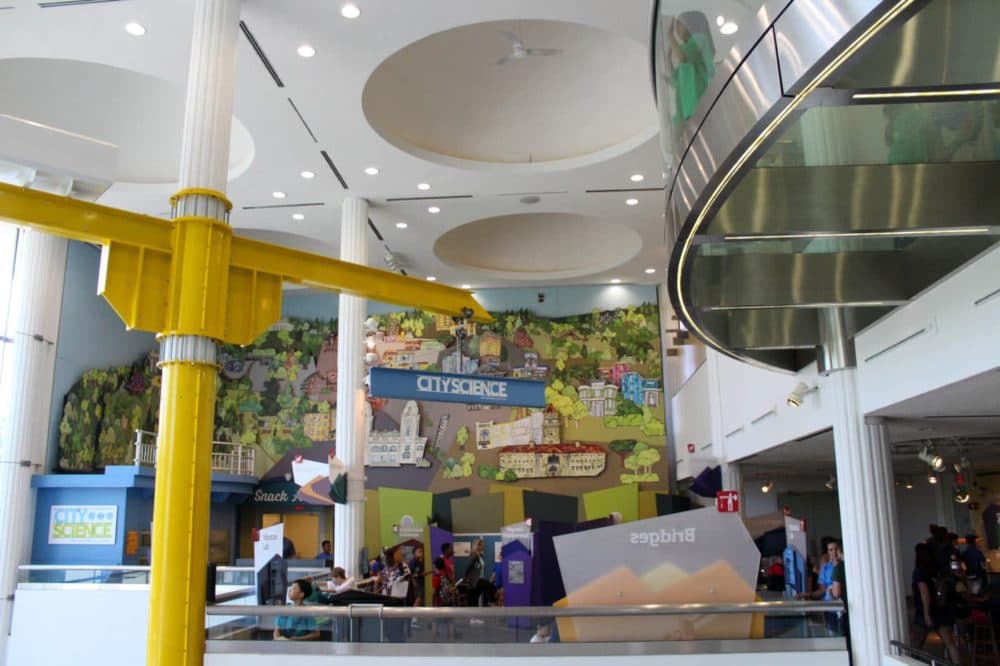Advertisement
Massachusetts Cultural Organizations Struggle In The Midst Of The Pandemic

Josiah Spaulding, president and CEO of the Boch Center, says never in his entire career has he had to make decisions as he has in the last week. Among them, laying off at least half his full-time staff, 26 people, and over 250 part-time employees. He's estimated millions of dollars in losses as a result of the coronavirus pandemic and expects that it may take a year for people to come back after this scare.
“When we all come back in the hopes that we all do, is the public ready to come back?” Spaulding asked. “How are we going to schedule events? A lot of these events are canceled and if we're on top of each other again when we reopen, is the public going to be comfortable enough to go out and buy tickets?"
The remaining staff is working remotely, Spaulding said. And he’s been talking to leaders at the state and federal level about how to help their industry.
Across the Commonwealth’s cultural sector, museums, galleries, theaters, and other organizations both large and small are struggling to stay afloat in the midst of this public health crisis. A survey by the Massachusetts Cultural Council found in just under a week many nonprofits have reported a loss of more than $55.7 million in revenue, according to Anita Walker, executive director of the Mass Cultural Council.
“I have to tell you, first of all, we only had the survey up for five or six days and we were astounded at the response,” Walker said. “More than a thousand individuals and individual organizations replied to our survey because they had a story they wanted to tell us. They wanted us to know what they were feeling during this incredible crisis.”
She emphasized this is not a projection. This is actual lost income. An estimated 88% reported canceling programs and events, resulting in 14,978 cancellations. An estimated 58% of organizations plan on laying off, furloughing and/or reducing hours for staff. Winter can be lean for working artists, she said. It's spring and summer that bring the opportunities to work at festivals and in performance venues. Right now, there are no festivals and the performance venues are closed.
“There's going to have to be some fast solutions to give our organizations and these individuals at least safe harbor,” Walker said. “This is a very resilient field, a creative and innovative field. If anybody can come back out of it, believe me, our field can."
The latter survey of 595 artists, which include independent teaching artists, humanists, and scientists reported a total of more than $2.89 million in lost personal income or an average of $5,098 per person. That's around nine jobs or gigs lost per person and a little over 5,047 paying jobs lost. For about half of those surveyed, that makes up 75 to 100% of their total income. Walker said one of the artists simply wrote in the comments, “I’m afraid."
Advertisement
She is counting on an influx of public support and financing from the federal, state and local level. She said the Mass Cultural Council is working on emergency relief funds for individual artists and cultural workers, along with organizational support to help get through this difficult time.

At the EcoTarium in Worcester, which is the second oldest natural history society in the country, president and CEO Lucy Hale said they initially thought the impact would be similar to the swine flu in 2009. Back then, field trips, educational programs and overnight events were canceled. That wasn’t the end of the world and neither is this, but the coronavirus pandemic will have a far more significant effect, she said.
“As the weeks have progressed, we went from program cancelations to maybe a two-week closure to possibly a four-week closure that would encompass our annual gala. We’re technically only closed through April 7 right now,” Hale said. “But we anticipate that will get extended." Based on the recommendations from the museum's national association, the Association of Science and Technology Centers, Hale has financially projected a close till the end of August.
That will be a $2 million hit to their bottom line, Hale said. This is the time of year that many museums like theirs ramp up, Hale said, building up cash reserves for quieter times of the year. She’s worked in this industry for 30 years and is beginning to see friends across the country lose their jobs. The EcoTarium has reserves and an endowment. Hale said she believes their museum is nimble enough to pivot without furloughs or layoffs, but it’s requiring salary reductions and cutting hours.
“All of our memberships will be extended based on the time that we've been close. So that's revenue that we just won’t see," she said. "Our philanthropic community has taken a huge hit, too. I don't think it's realistic that we'll be able to make everything up in contributions and earned revenue.”
She says if and when they do open in September, she hopes to have a welcome back celebration, while keeping in mind that social distancing may still be in effect.

In the meantime, a company volunteered to make them a virtual tour of the museum.
“We watched it...and I got really weepy," Hale said. "I really miss the building. I really miss seeing everybody. I really miss seeing the animals. It's a really special place.”
